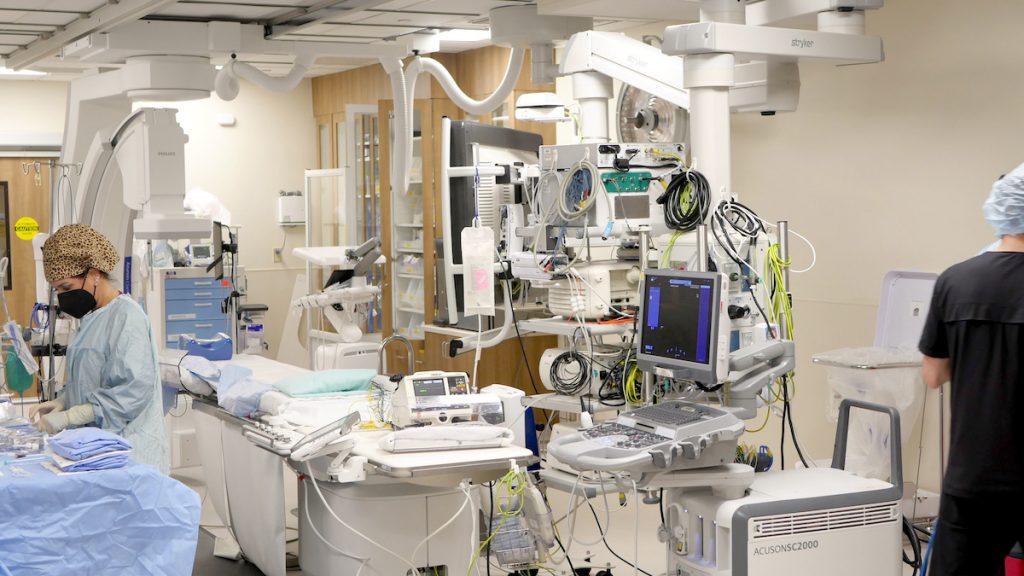What Is an Electrophysiologist?
The easiest way to describe an electrophysiologist is a specialized electrician of the heart. Ultimately, we are trained cardiologists. However, we have taken two years of additional fellowship training to specialize in this complex sub-specialty of cardiology. One thing that separates electrophysiologists from general cardiologists is the array of diagnostic tools available to us to diagnose a cardiac arrhythmia. All too often, patients are initially diagnosed with Afib or other arrhythmias in the ER. Electrophysiologists have diagnostic tools such as Holter monitors, event monitors, and loop recorders that are effective in long-term tracking and ultimately diagnose Afib and other heart rhythm disorders.
While we have unique diagnostic tools, we also utilize some of the most advanced technology in modern medicine to accurately map the heart’s structures and electrical signals. This allows us to pinpoint the source of the arrhythmia using the least invasive technology possible. We can even often treat the arrhythmia during the same procedure with only a tiny incision in the groin, arm, or chest.
While about 50% of our practice revolves around fast heartbeats known as tachycardia like Afib, the other 50% is dedicated to implanting assistive heart systems known as pacemakers. As you are probably aware, pacemakers have been around for decades. They have represented a critically important lifeline for those with slow heartbeats known as Bradycardia and those suffering from cardiovascular conditions such as congestive heart failure. However, even with this tried and true technology, there are exciting advances. New technology has minified pacemakers’ size, and a new generation of leadless pacemakers offers patients a less invasive, equally effective option in many cases.
Electrophysiology is a growing and evolving specialty that, in our opinion, is leading the way for safer, more effective, and less invasive methods to treat even the most complex cardiovascular conditions.

Click here to learn more about Dr. Moretta’s training and specializations.